CCTV News (Focus Interview):When we go shopping in the supermarket, after paying the bill at the cashier, we will all receive a small ticket with the price details of the shopping. However, after you buy something in the supermarket, do you have the habit of checking the shopping receipt? Have you ever found any problems in the shopping receipt? Recently, the reporter conducted an investigation into this.
The reporter’s random interview found that many customers said that they would not look at the price of shopping receipts after shopping. So is the supermarket really as trustworthy as some customers say? Just after the "Eleventh" holiday, the reporter went to a large supermarket. The discount promotion activities of the supermarket "Eleventh" were not over yet, and many citizens were comparing prices to choose goods.
Concessions and discounts are often used in supermarkets to promote sales, which will really attract consumers. However, the reporter’s investigation found that the discounts in some supermarkets are not as written on the label.
In the area where this supermarket sells instant noodles, the reporter saw the yellow label of Master Kong with 20 yuan minus 3 everywhere, and many people bought it. Counting that it can be reduced by 3 yuan, an elder sister took two packs of instant noodles and left. The reporter also plans to buy two packages to enjoy the preferential price. Before taking them, the reporter confirmed the discounted purchase scope to the shopping guide. The shopping guide told the reporter that he could only buy the original price goods of Master Kong’s family.
The reporter chose two packs of Master Kong instant noodles with the original price, the total price exceeded that of 20 yuan, which met the preferential requirements of 20 minus 3. However, after the check-out, the reporter didn’t see the information of discount minus 3 yuan on the shopping receipt. The reporter asked the staff, and the staff asked the reporter to return the goods. Seeing the reporter didn’t mean to return the goods. The supermarket staff could only find the sales staff of the manufacturer to find the reason. After they tried it on the self-service checkout machine, they found that the system did not give a discount.
The staff said to the reporter, "Can you return this? This is a systematic problem of Wumart. "
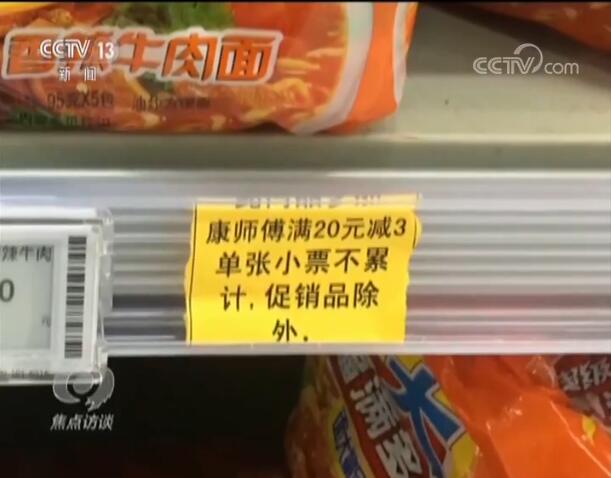
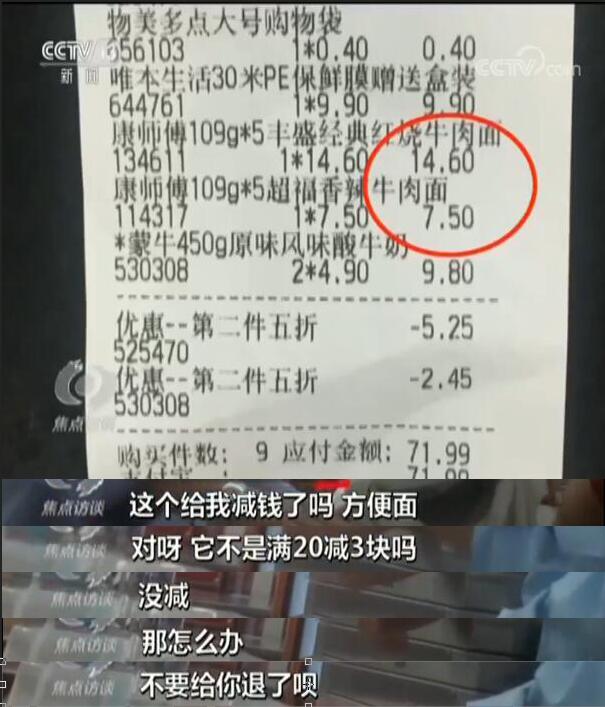
Screenshot of program video
It is understood that the preferential activities of some products started on September 26th and lasted for half a month. I wonder how many people bought the instant noodles that were written with a discount, but there was no discount. A staff member said: "In the past two days, I have seen a lot of people saying that they have reduced this, but they have not reduced it after sweeping."
The reduction was not reduced, and the staff at the counter could not solve it. The reporter found the service center again. The staff of the service center said that they could not handle it, and the price difference could not be refunded, so they could only return it. So, is this problem man-made or intentional? The staff said: "I don’t know, because there was this problem in the morning, I returned it directly to the customer."
Although some customers have encountered the discount before, half a month has passed, the preferential activities are coming to an end, and the supermarket has not adjusted the problems. Is this intentional or careless?
Zhang Yanfang, a member of the Expert Committee of the China Consumers Association, said: "This kind of system failure should be dealt with in time. If this problem occurs for the first time, it can be considered as a correctable problem and can be solved reasonably and legally, thenIf it reappears for the second time, Shangchao may have subjective intention. In this case, it constitutes the price fraud stipulated in Document No.15 of the National Development and Reform Commission and Order No.73 of the former State Administration for Industry and Commerce, which constitutes an infringement on consumers."
In this shopping, it’s not just instant noodles that have price problems. At the cosmetics counter, the reporter saw that some hair dyes were marked with a 50% discount on the second piece. The reporter took two boxes, because there was only one box left in one color, and the reporter chose a box of hair dye of the same brand and the same price in other colors, and there was also a problem when checking out.
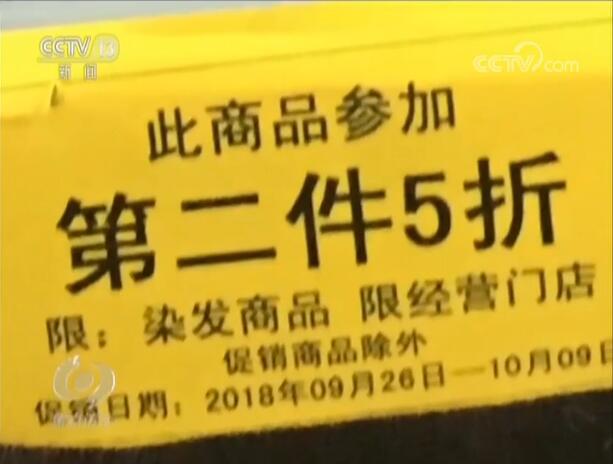
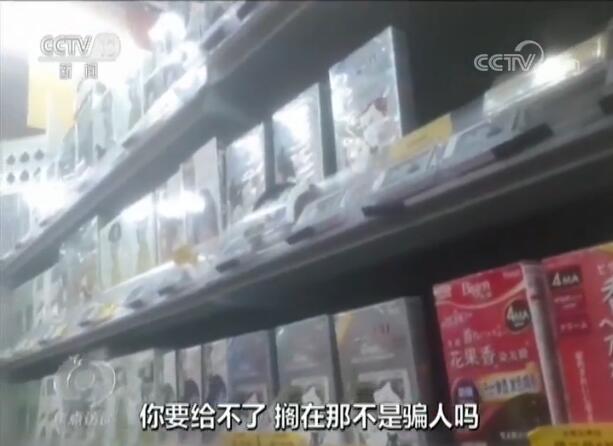
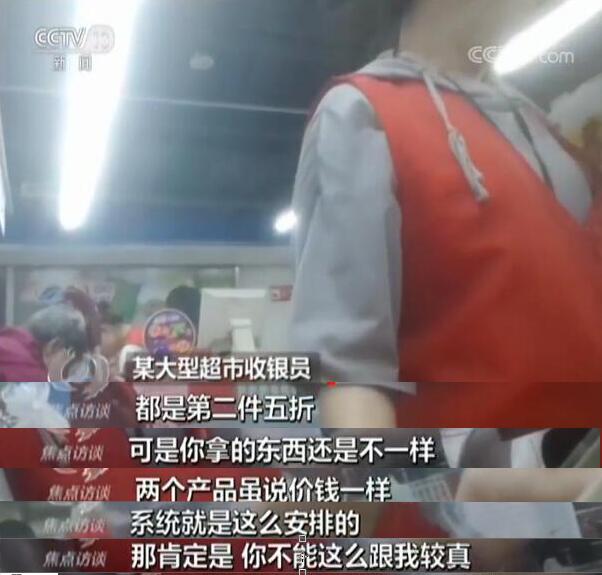
The label of the same hair dye says that the second one is 50% off. Why can’t you get a discount if you take two different colors? Moreover, the label does not indicate the need for the same model products. The reporter found the cosmetics counter again. The staff said that the two products need to be the same bar code to get a 50% discount on the second one. The discount label does not indicate that the second product of the same model can be 50% off, but the supermarket has set different barcodes for two different colors of hair dyes. The staff member also said that although the hair dye taken by the reporter has a discount label, it is not within the scope of activities. What is going on?
The staff said that this product is single, all of them are monochrome numbers, and none of them are matched. The remaining one cannot participate in the activity. There is only one item in stock, that is to say, according to the setting of the supermarket, the reporter can’t enjoy the 50% discount on the second item anyway, but knowing this, the price tag staff of this discount just won’t remove it. The staff told the reporter that in fact, two different colors of hair dyes are not impossible to discount, as long as she goes to the counter to say hello. But this matter, you don’t ask, she will not take the initiative to say.
There is no discount, and there is a difference of tens of yuan before and after, which is not a small amount. There is no discount that should be available, misleading consumers. The reporter also found a similar situation when investigating in other supermarkets. In another large supermarket, a shelf selling slippers reads a discount message: from October 9 to October 22, buy full-court slippers and get 20% discount for 2 pairs. Supermarket staff told reporters that the low-priced, member-owned and selected posters are not counted, and the original ones only participate in the activities.
Write the whole audience, how come there are so many rules? Look at the poster carefully again, and the details of the activity are marked in very small words: poster, low price, membership, featured recommendation and brand counter are excluded. The reporter selected two pairs of slippers that are neither posters, low prices, members, nor featured recommendations or brand counters. As a result, it was found at the checkout that these two pairs of slippers were not discounted. The reporter found the service center of the supermarket. The staff of the service center told the reporter that the slippers taken by the reporter may be special items on the poster and cannot participate in the discount.
After repeated confirmation, the staff member admitted that the reporter did not take the special slippers on the poster. In order to find out whether the slippers taken by the reporter can be discounted, the staff of the service center found the relevant person in charge of the supermarket. The person in charge also didn’t know the situation, so he asked the reporter to go back to the slipper counter to ask the salesman for advice. The reporter returned to the counter and was told that the salesman had a rest that day.
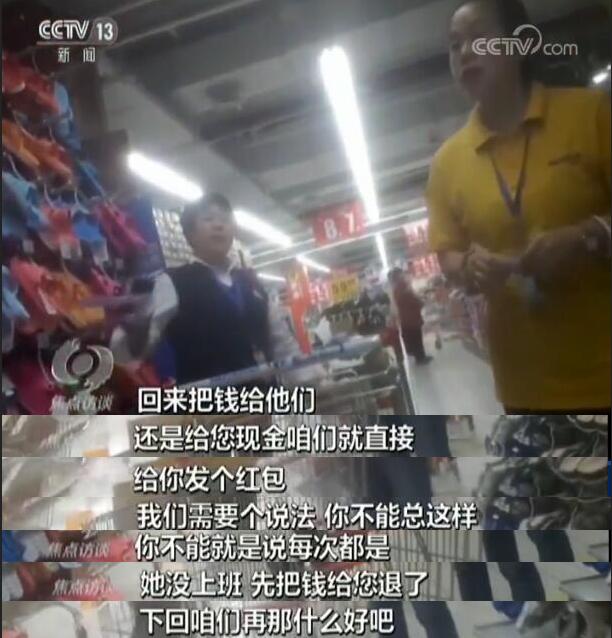
The most direct way to solve the problem in supermarkets is to return goods.
Just then, the person in charge upstairs came down. The reporter also raised the question of how to distinguish which shoes can be discounted and which can’t be discounted. The person in charge stood in front of the shelf for a long time, and he couldn’t say clearly which ones could be discounted. In the end, the person in charge chose the simplest solution: return the goods directly to the reporter. The reporter said that he needed an explanation, and it can’t always be like this. The other party said, "I’ll give you the money back first, and we’ll solve it next time."
The reporter returned to the slipper counter after returning the goods at the service desk and found that all the preferential information boards had been removed.
Zhang Yanfang believes: "From the latter two consumer behaviors, it can be seen that in fact, the dishonest behavior of Shangchao is more prominent here. In the face of consumers, the ambiguity and vagueness of its product information disclosure poster, which can not mark the products participating in the activities in a prominent position, will mislead consumers, whether it is from Article 20 of the Consumer Law or 55 advertising laws of the Consumer Protection Law, or 14 of the Price Law we have seen. "
From the mouth of the supermarket staff, the reporter learned that the situation encountered by the reporter was not a case.
In random interviews on the street, many consumers told reporters that they had encountered such price problems. Some people understand this behavior in supermarkets, while others think it is intentional.
It says that there is a discount, but there is no discount. It says that there is a discount, but there is no discount. Although the supermarket also gives a refund after the consumer raises an objection, this practice has violated the integrity management. Especially for those consumers who don’t look at the shopping receipts, they don’t know it after eating yabakui. When doing business, merchants should keep consistent in their words and deeds. They can’t say one thing and do another, which will hurt their reputation, but it is inevitable that they will be suspected of fraud. As consumers, we sincerely hope that we can shop with confidence, but if you find problems and disputes when shopping, it is recommended to complain and report to the regulatory authorities in time.